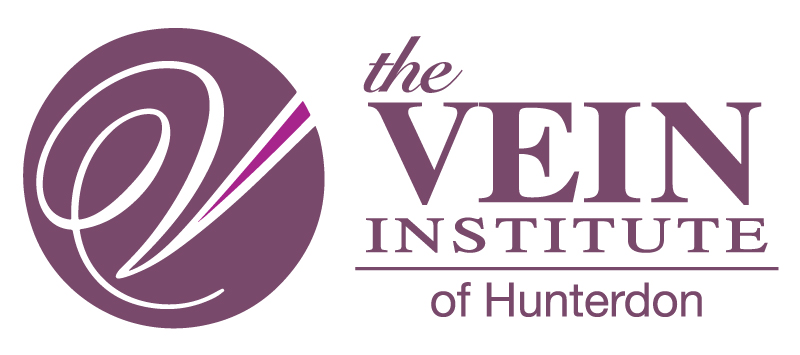Chronic Venous Insufficiency
What Is Chronic Venous Insufficiency?
Chronic venous insufficiency is part of the broader family of venous diseases, which includes varicose veins, spider veins and deep-vein problems. In a healthy vein, one-way valves and the calf muscles work together to move blood back toward your heart. When these valves are weak or missing, blood flows backward and pools in your legs. Some people are born with malformed veins, others have veins that widen over time, and many develop the condition after a blood clot damages a valve.
Vein specialists classify venous disorders on a scale from 0 to 6, and chronic venous insufficiency is diagnosed from stage 3 onward.
- Stage 0 has no visible signs
- Stage 1 shows tiny spider veins or reticular veins
- Stage 2 involves bulging varicose veins
- Stage 3 brings swelling
- Stage 4 causes skin changes
- Stage 5 reflects a healed ulcer
- Stage 6 means an active leg ulcer
Contact Us
Chronic Venous Insufficiency Symptoms
When blood pools in your legs, you may feel tired or achy, notice a burning or pins-and-needles sensation or get nighttime cramping. Discolored reddish-brown skin, flaky or itchy patches and a full or heavy feeling in the legs are also common.
As pressure builds, swelling around the ankles worsens after standing and improves when you elevate your legs. Untreated, the skin can become leathery, and ulcers may form near the ankles. These symptoms often overlap with other venous diseases, so an evaluation from your provider helps determine what stage you’re in.
Venous diseases can cause:
- Itching
- Rash
- Thickened skin
- Cramping
- Heaviness
- Slow-healing sores
Causes and Risk Factors
Any condition that damages the valves inside your veins can lead to chronic venous insufficiency. Risk factors include:
- History of deep-vein thrombosis (DVT)
- Having varicose veins or a family history of them
- Obesity
- Pregnancy
- Lack of physical activity
- Smoking or using tobacco
- Sitting or standing for long periods
Sleeping in a chair, being female or over 50 and having conditions such as May-Thurner syndrome also raise your risk. External injuries, surgery and hormonal medications like birth control may contribute.
Diagnosis
Diagnosing chronic venous insufficiency starts with a physical exam. Your provider will look for swelling, skin discoloration, ulcers or varicose veins.
They may perform a vascular ultrasound to see how blood flows through your veins and identify damaged valves. Ultrasound is considered the gold standard for confirming chronic venous insufficiency and guiding treatment. Providers sometimes order other tests to rule out peripheral artery disease or deep-vein clots.
At The Vein Institute of Hunterdon, our providers inspect veins with ultrasound before procedures such as endovenous laser treatment (EVLT).
Chronic Venous Insufficiency Treatment
Treatment for chronic venous insufficiency is typically a combination of lifestyle changes along with minimally invasive procedures. Your provider will create a treatment plan based on your symptoms, vein anatomy and health.
Lifestyle Changes and Conservative Care
Early treatment often focuses on improving blood flow. Raising your legs above your heart for at least 30 minutes several times a day, along with exercising and flexing your ankles, can help your calf muscles pump blood.
Maintaining a healthy weight and eating a heart-healthy diet can reduce stress on your veins. Avoid sitting or standing for long periods and take breaks to move around. Compression stockings or bandages are a cornerstone of conservative therapy, as they squeeze the veins gently and ease swelling.
Endovenous Procedures Offered by Our Practice
The Vein Institute of Hunterdon offers several treatments:
- Radiofrequency ablation (RFA): Uses thermal energy delivered through a catheter to damage the vein wall. The heat causes the vein to collapse, and blood flow redirects to healthy veins. RFA is minimally invasive, often performed in an outpatient setting, and patients can resume normal activities almost immediately.
- VenaSeal™: Uses a special medical adhesive instead of heat. Under ultrasound guidance, our provider inserts a tiny catheter into the vein and applies medical glue to seal it. The adhesive causes the vein walls to stick together, and the closed vein is eventually absorbed by your body.
- Endovenous laser treatment (EVLT): Involves threading a thin laser fiber into the faulty vein through a small entry point in your leg. Laser energy heats the vein wall, causing it to collapse and eventually be absorbed. EVLT is quick, does not require general anesthesia and leaves little scarring.
Outlook
Chronic venous insufficiency is not life-threatening, but it is progressive and can affect your comfort and confidence. Treatment cannot restore damaged valves, yet it can relieve your symptoms and prevent ulcers from recurring.
Conservative care and minimally invasive procedures often give significant improvements in pain, swelling and appearance. Without treatment, however, persistent swelling and skin changes may lead to painful ulcers and infections. Ongoing follow-up with your providers helps you stay ahead of complications and adjust your plan as needed.
Take the Next Step With Our Providers
If you recognize the signs of chronic venous insufficiency or have been living with tired legs, swelling or skin changes, our team is ready to help. At The Vein Institute of Hunterdon, you’ll be cared for by compassionate providers in a professional, comfortable setting. Give us a call at (908) 788-0066 or request an appointment at one of our offices in Clinton, NJ, or Bridgewater, NJ.
Schedule Your Appointment Today!
Give us a call at
(908) 788-0066
or schedule a free vein consultation to learn more!
